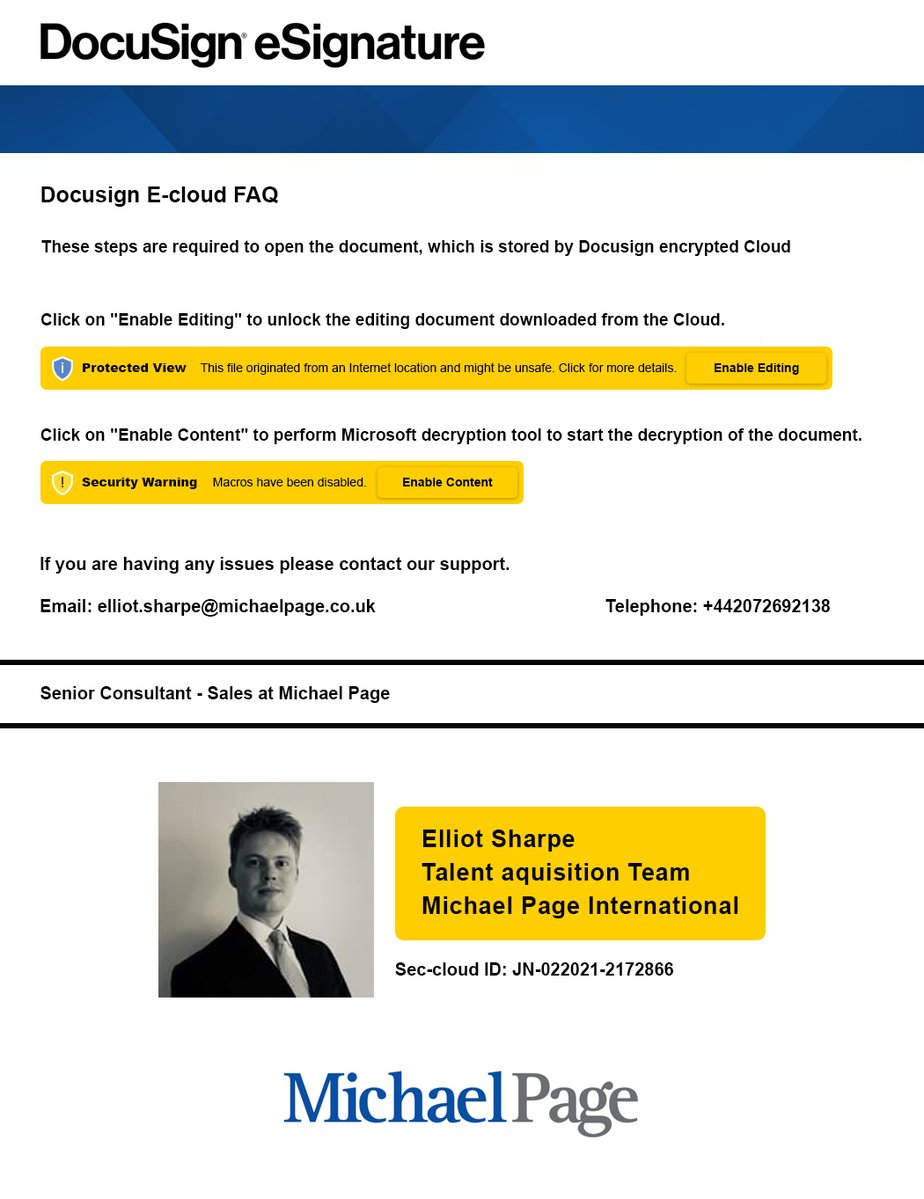
An ongoing phishing campaign is impersonating Michael Page consultants to push Ursnif data-stealing malware capable of harvesting credentials and sensitive data from infected computers.
Michael Page is a world-leading employment agency focused on recruiting at the qualified professional and management level for permanent, temporary, contract, or interim positions.
The agency is part of the British-based PageGroup recruitment business with operations in the Americas, UK, Continental Europe, Asia-Pacific, and Africa.
Attackers spoofing Michael Page UK
"We are continuing to experience a global phishing campaign where our employees are being impersonated," Michael Page UK said.
"We are confident that no PageGroup system has been compromised," the parent company added, confirming that the attackers haven't breached the recruitment consultancy's servers and are only spoofing employees in the phishing emails sent to random targets.
"These phishing emails are being generated from publicly available information not linked to our business and are being then sent on to random email recipients," PageGroup revealed.
PageGroup urges those who have received one of these phishing emails or any email coming from Michael Page that looks suspicious "not to reply or click" on any of the embedded links.
Never rely on an email signature or name to check the validity of an email, and please never click on a link until you are satisfied that it is from a sender you know. (3/3)
— Michael Page UK (@MichaelPageUK) April 22, 2021
Victims baited with executive positions
In phishing emails sent as part of this campaign seen by BleepingComputer, attackers posing as Michael Page UK headhunters are luring targets with executive positions.
These emails use embedded links to redirect potential victims to phishing landing pages featuring GeoIP and antibot checks, according to a security researcher known as TheAnalyst.
The victims are then asked to download archives containing malicious macro-enabled Microsoft Excel spreadsheets (XSLM) and featuring DocuSign branding, asking the targets to enable editing to decrypt and open the document.
Once the victims enable macros, they are shown a decoy document with information on a fake management position, while the Ursnif malware payload is downloaded and installed on their computer in the background.

The Ursnif data-stealing malware
Ursnif (also known as Gozi v2.0, Gozi ISFB, ISFB, and Pandemyia) is an information-stealing trojan and an offspring of the original Gozi banking trojan (Gozi CRM) whose source code accidentally leaked online in 2010.
Since then, malware developers have used the code to build other banking trojan strains, such as GozNym.
Once it infects a computer, Ursnif starts recording the victims' keystrokes, the sites they visit, harvests clipboard content, and collects all this info into log files and sent back to its operators' servers.
Using this stolen info, the attackers can steal their victims' login credentials and other sensitive data to further compromise their accounts or networks.



Post a Comment Community Rules
You need to login in order to post a comment
Not a member yet? Register Now